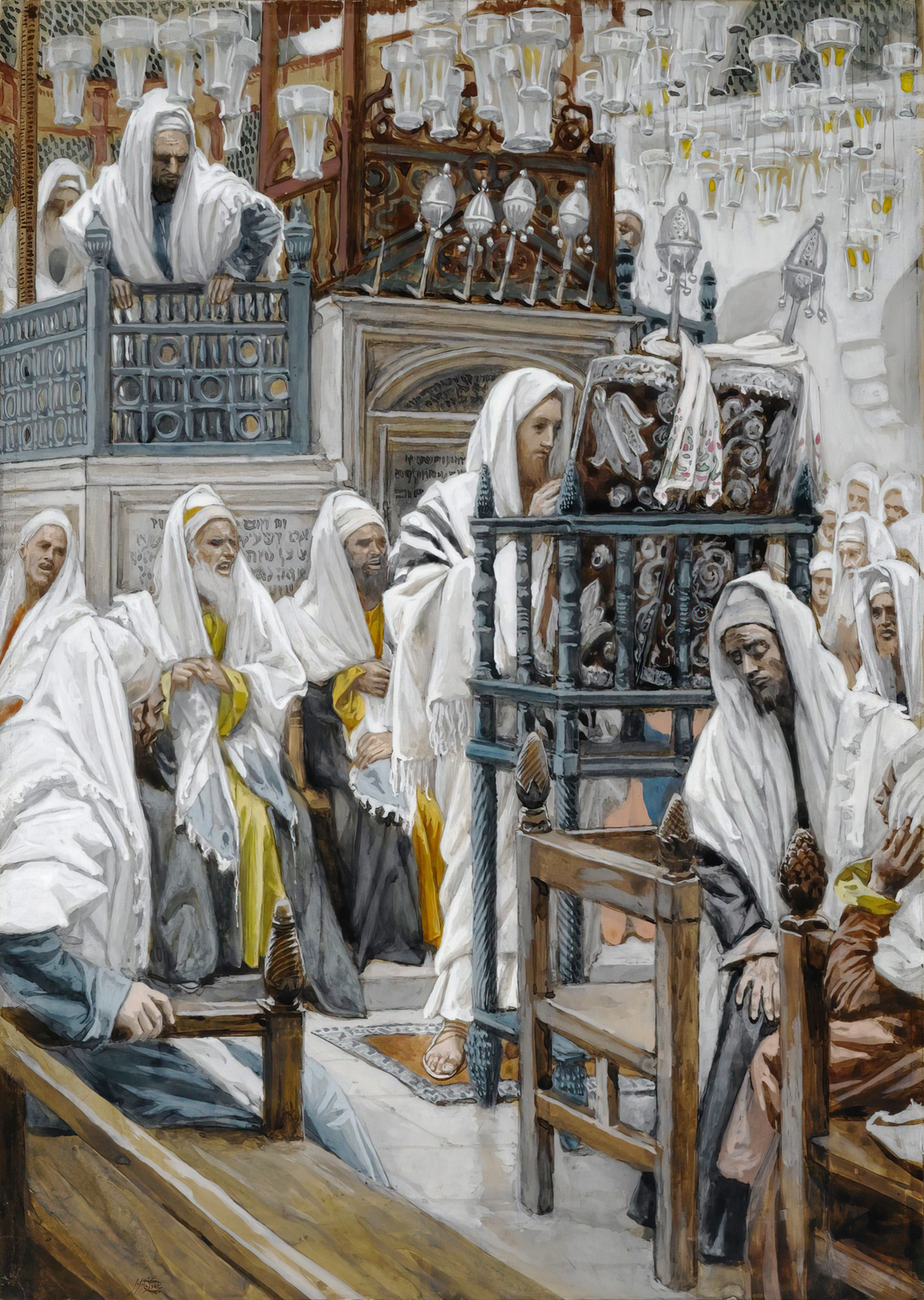We all come to relationships and circumstances with our own perspective, seeing things through our own eyes. Our perspective about people or situations affects what we think and how we feel about them and how we react to them. No one has the benefit of complete objectivity, or of seeing, thinking, and feeling something exactly as another does. In addition, one person may be experiencing something or struggling with something that another has no awareness of.
We can easily be in error in our judgment, and it is beneficial to come to someone with compassion and a desire to understand prior to making suggestions and certainly before condemning them.
The reverse is also true. Others cannot see or feel what I do. They don’t experience my life through my eyes. And when someone says something to me that comes from a place of misunderstanding, it can feel very hurtful and irritating.
This is what struck me about today’s Gospel account. The people of Nazareth thought they knew Jesus. “Is he not the carpenter, the son of Mary?” Did we not watch him as he grew? Did he not play with our children? Buy from us in the market? Build furniture for our homes? How is he speaking to us in this way, with such wisdom? No, it cannot be. He is only Jesus.
How this must have hurt Jesus who, as God, wanted to pour Himself out upon the people He knew and loved! He did not want to exclude anyone from His work of love and salvation, but they excluded themselves through their lack of faith and by rejecting who He really was.
Jesus is our example. In this situation, He remained calm and spoke the truth. He did what He could and moved on, undoubtedly still loving those very people and asking the Father that they would come to understand and believe. Perhaps He prayed for them as He later prayed for His executioners, “Father, forgive them, they know not what they do” (Luke 23:34).
Jesus also did not let their lack of understanding stop Him from doing what He knew the Father was asking of Him. He continued to preach, heal, and teach about the Father’s love, then to die for us.
That is good for us to remember as well. We are to discern with God what He would want us to do and then be faithful. It is far too easy to allow a desire to please people or a fear that others will think poorly of us to discourage or intimidate us. Others may misunderstand us. They may judge us. But our job is to follow God and do His will, to love Him and love others, despite what people may think of us.
Todos abordamos las relaciones y las circunstancias con nuestra propia perspectiva, viendo las cosas a través de los propios ojos. Nuestra perspectiva sobre las personas o las situaciones afecta lo que pensamos y cómo nos sentimos respecto de ellas y cómo reaccionamos ante ellas. Nadie tiene el beneficio de una objetividad completa, ni de ver, pensar y sentir algo exactamente como otra persona. Además, una persona puede estar experimentando algo o batallando con algo y otros no están ni conscientes de ello.
Es fácil equivocarse en el juicio, y es beneficioso acercarse a alguien con compasión y con el deseo de comprender antes de hacer sugerencias y, por supuesto, antes de condenarlo.
Lo contrario también es cierto. Los demás no pueden ver ni sentir lo que yo hago. No experimentan mi vida a través de mis ojos. Y cuando alguien me dice algo que surge de un lugar de malentendido, puede resultar muy doloroso e irritante.
Esto es lo que me impactó del Evangelio de hoy. La gente de Nazaret creía conocer a Jesús. “¿Qué no es éste el carpintero, el hijo de María?” ¿No lo observamos mientras crecía? ¿No jugaba con nuestros hijos? ¿No compraba en el mismo mercado? ¿No construía muebles para nuestras casas? ¿Cómo nos está hablando de esta manera, con tanta sabiduría? No. No puede ser. Sólo es Jesús.
¡Cuánto le debe haber dolido a Jesús, que como era Dios quería derramarse sobre las personas que conocía y amaba! No quería excluir a nadie de su obra de amor y salvación, pero ellos se excluyeron a sí mismos por su falta de fe y por rechazar quién era.
Jesús es nuestro ejemplo. En esta situación, se quedó tranquilo y dijo la verdad. Hizo lo que pudo y siguió adelante, sin duda amando a esas mismas personas y pidiendo al Padre que llegaran a comprender y creer. Quizás oró por ellos como más tarde oró por sus ejecutores: “Padre, perdónalos, porque no saben lo que hacen” (Lucas 23,34).
Jesús tampoco permitió que su falta de comprensión le impidiera hacer lo que sabía que el Padre le estaba pidiendo. Siguió predicando, sanando y enseñando acerca del amor del Padre, y luego murió por nosotros.
También es bueno acordarnos de eso. Debemos discernir con Dios lo que Él quiere que hagamos y luego ser fieles. Es muy fácil permitir que el deseo de agradar a los demás o el temor de que los demás piensen mal de nosotros nos desanimen o nos intimiden. Los demás pueden malinterpretarnos, pueden juzgarnos, pero nos toca seguir a Dios y hacer Su voluntad, amarlo y amar a los demás, a pesar de lo que la gente pueda pensar de nosotros.
 Kimberly Andrich writes from the perspective of having a hidden, chronic illness and experiencing a deep, continuous conversion through being yoked to Jesus in the day-to-day trials and joys of life. She is a wife, mother of 5, and daughter of the King. Kimberly also writes for Catholicmom.com and on fallingonhisgrace.substack.com.
Kimberly Andrich writes from the perspective of having a hidden, chronic illness and experiencing a deep, continuous conversion through being yoked to Jesus in the day-to-day trials and joys of life. She is a wife, mother of 5, and daughter of the King. Kimberly also writes for Catholicmom.com and on fallingonhisgrace.substack.com.
Feature Image Credit: James Tissot, art.diocesan.com/stock-photo/jesus-unrolls-the-book-in-the-synagogue-jesus-dans-la-synagogue-deroule-le-livre-5675/
The views and opinions expressed in the Inspiration Daily blog are solely those of the original authors and contributors. These views and opinions do not necessarily represent those of Diocesan, the Diocesan staff, or other contributors to this blog.

